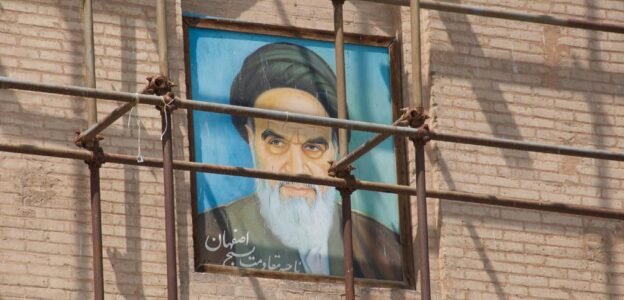
Qatar Uneasy amid Iran Protests
The “women, life, freedom” movement in Iran has been prominent in international headlines this autumn, with protests spreading across the nation. And though the murder of Masha Amini served as a catalyst for the movement, public anger has been steadily building up in the theocracy for decades.
The protests aren’t limited to Iran; rather, the Iranian diaspora have also held major rallies in North America and Europe, and have pushed to raise awareness in the Middle East as well. Nonetheless, some MENA nations have been reluctant to broadcast the protests, the most notable example being Qatar, which is in the midst of hosting the World Cup.
With a sweeping media ban of the ongoing Masha Amini Protests and brutal IRGC crackdowns, Doha has moved to silence dissidents found displaying the signs and symbols of the protest movement. Despite fraught regional geopolitics and it being a major non-NATO ally, the Qatari monarchy continues its media blackout for fear of spillover creating a similar uprising in their own nation.
Qatar has been embroiled in controversy long before the World Cup due to alleged ties with extremists organizations operating in Syria. Moreover, the government has granted a diplomatic presence to the Taliban, maintains strong ties with the Muslim Brotherhood and Hamas, and has been a major backer of President Erdogan’s Islamist AKP party in Turkey. Qatar’s sprawling influence has triggered regional blowback at times, with an embargo by fellow Gulf states only recently being lifted.
Similarly, Iran’s hardline theocracy also backs militant groups, particularly Shiite ones such as Hezbollah and the Houthis of Yemen. Both Iran and Qatar adopt theocratic practices, led by long-standing ruling elites with a spotty record of human rights abuses.
Qatar’s World Cup bid was paid for with the blood of thousands of migrant workers; one Guardian report estimated a total of 6,500 deaths since the event was awarded to Doha. And though Doha ranks among the best Gulf countries with regard to women’s rights, there is still much work to be done. Basing their system around Sharia law akin to Tehran, women are forced to endure a hardline Islamic doctrine and guardianship system under either their husbands or male family members.
This abysmal women rights record coincides with alleged corruption within FIFA; for example the case where a World Cup official was sexually assaulted, which was downplayed by the Qatari authorities whom immediately accused her of having an extramarital affair. Under Qatari law, her punishment would have been one hundred lashes and seven years imprisonment had she not left the country before sentencing.
As Iran’s protests grow and demands for freedom and equal rights for women grow louder, Qatar and other MENA nations with abysmal rights records have watched in awe and fear. Qatari authorities are even believed to be collaborating with the IRGC to crush public displays of dissent during the World Cup, with the most egregious incidents taking place during Iran’s matches.
An Iran International report claimed that a hacktivist group recorded an audio tape meeting by Basij General Ghoreyshi, who allegedly urged the Qatari authorities to do everything they could to maintain a media blackout on all Iranian activists and supporters during the competitions. Security personnel at the stadiums were seen escorting activists with the “women, life, freedom” shirts — the current slogan of the Iranian uprising. On November 29, a Danish journalist was detained for filming repressive actions against Iranian activists.
As both Qatar and Iran are ruled by unaccountable absolute power, both regimes, now perceive the growing progressive movement in the Middle East as a potential threat. Despite the attempted media blackout, the World Cup has only highlighted the plight of Iranians while demonstrating the corruption of FIFA and its ties to autocratic regimes which bribe their way into hosting events, as seen with Moscow and Doha.
Repression and violence have only added fuel to the fire, and the Masha Amini protests show that dictatorships can only prop up their rule with brutality for so long before their people rise up and say “enough’s enough.”
Source: Geopoliticalmonitor





